In the shadow of a pagoda and a mosque, not long after dawn had broken in downtown Rangoon, a line of citizens shuffled forward to cast their votes in Burma’s most consequential election in a generation. Some in Burma’s commercial capital dressed in their best sarongs, others in embroidered veils and Muslim prayer caps. Still others chose the uniform of the tropics worldwide: shorts and t-shirts inscribed with a collection of random English words. War War Nandar Min, 20, chose a t-shirt speckled with red hearts. “I’m not supposed to say who I voted for,” she said. But she quickly pointed to the red on her shirt. “Red is my favorite color.”
Red is also the color of opposition in Burma, which is officially now known as Myanmar. The hue belongs to the National League for Democracy (NLD), the party of Nobel Peace Prize laureate Aung San Suu Kyi. During the campaign period in Rangoon, NLD red flags, adorned with a fighting peacock and star, were draped from decrepit balconies and decorated sides of cars. In 1990, the NLD won a landslide victory in nationwide polls but the military regime ignored the result. Suu Kyi spent most of two decades under house arrest, only emerging in late 2010, shortly after a rigged election boycotted by the NLD installed the Union Solidarity and Development Party (USDP), a military proxy, in power.
It is easy to list the ways in which the Nov. 8 elections are flawed. The generals who governed Burma for nearly half a century, ruining a land graced with natural bounty, stage-managed a transition to what they called “discipline-flourishing democracy.” Even if the NLD scores another landslide today, the 2008 constitution precludes Suu Kyi from the presidency and reserves one-quarter of parliament for the military.
While many political prisoners have been released, others have been thrown back in jail. A much-expected investment boom has failed to materialize, and cronies have snapped up the country’s choicest contracts. Corruption gnaws at society. Ethnic minorities, who make up at least one-third of Burma’s complex cultural patchwork, complain of no end to the discrimination that led some to pick up arms decades ago. Hundreds of thousands of Rohingya, a Muslim ethnicity living in Burma’s far west, have been disenfranchised and sequestered in camps; the vote was also canceled in eastern ethnic zones where the Burmese army has attacked ethnic militias, despite a much-vaunted ceasefire. A virulent nationalist movement that claims Buddhist credentials is trying to rend Burma’s multicultural fabric.
And while Rangoon has bustled with the trappings of democratic process — raucous campaign rallies, international election observers, first-time voters showing off their ink-stained pinkies — the NLD and other opposition parties complained of voter-list irregularities and suspicious numbers of advanced voters. On Saturday evening in Rangoon’s Kyauktada township, a polling station in a Buddhist hall welcomed advance voters. “Everything is going just fine,” said Kyaw Kyaw Lwin, a township electoral commission official. Yet no one had bothered to secure the five ballot boxes with yellow plastic locks, per regulation.
Inside Burma’s First Free Nationwide Election in 25 years
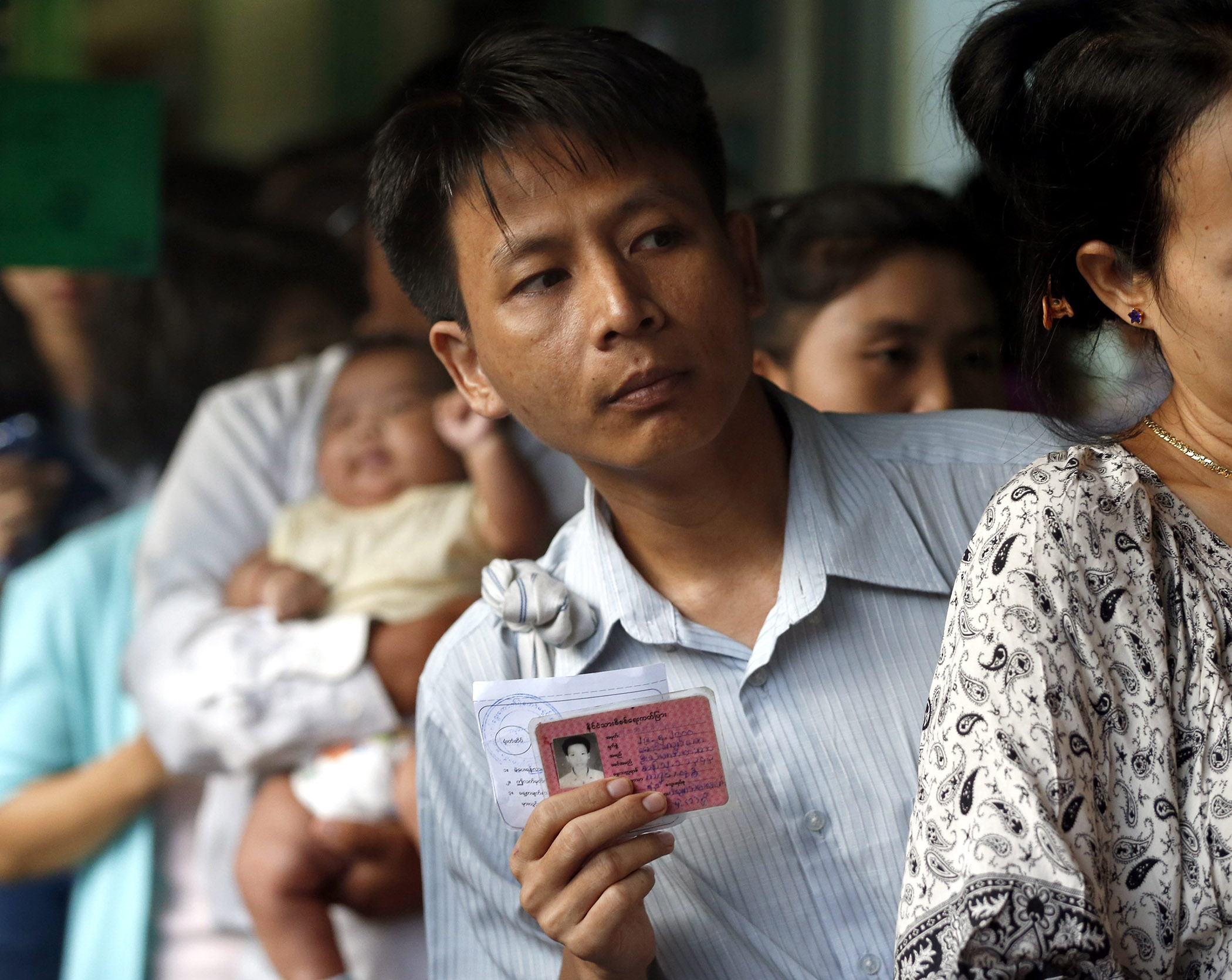
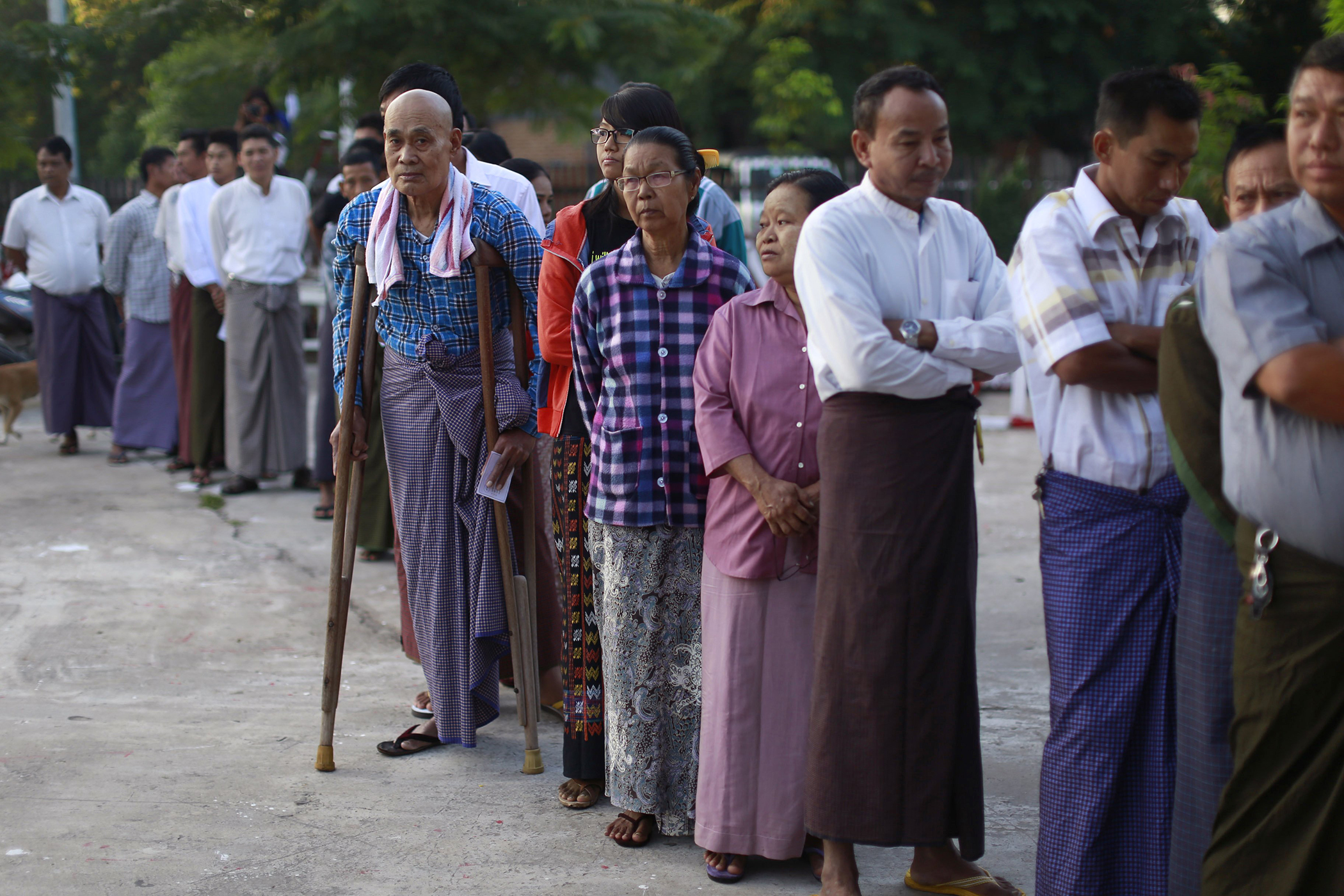
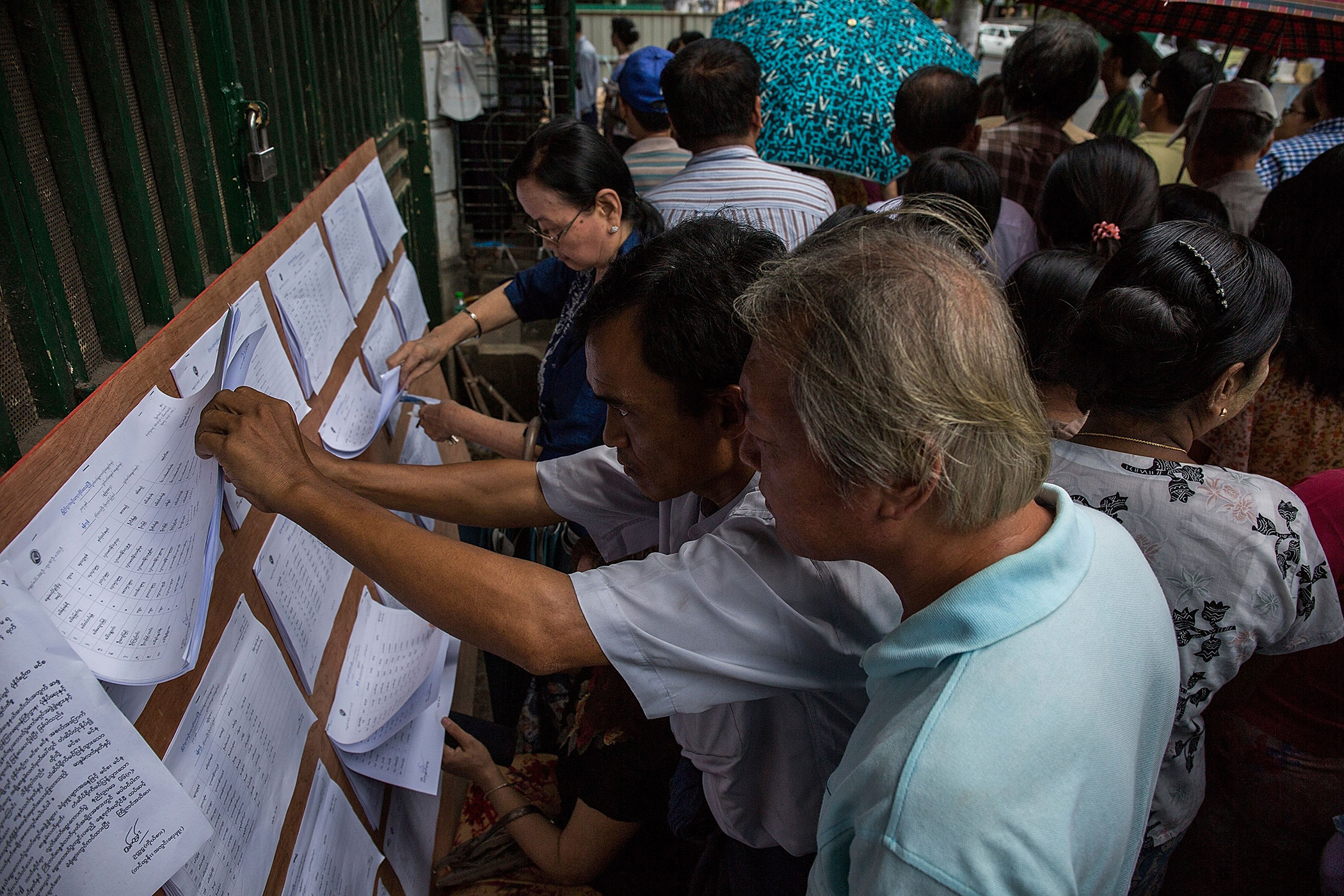
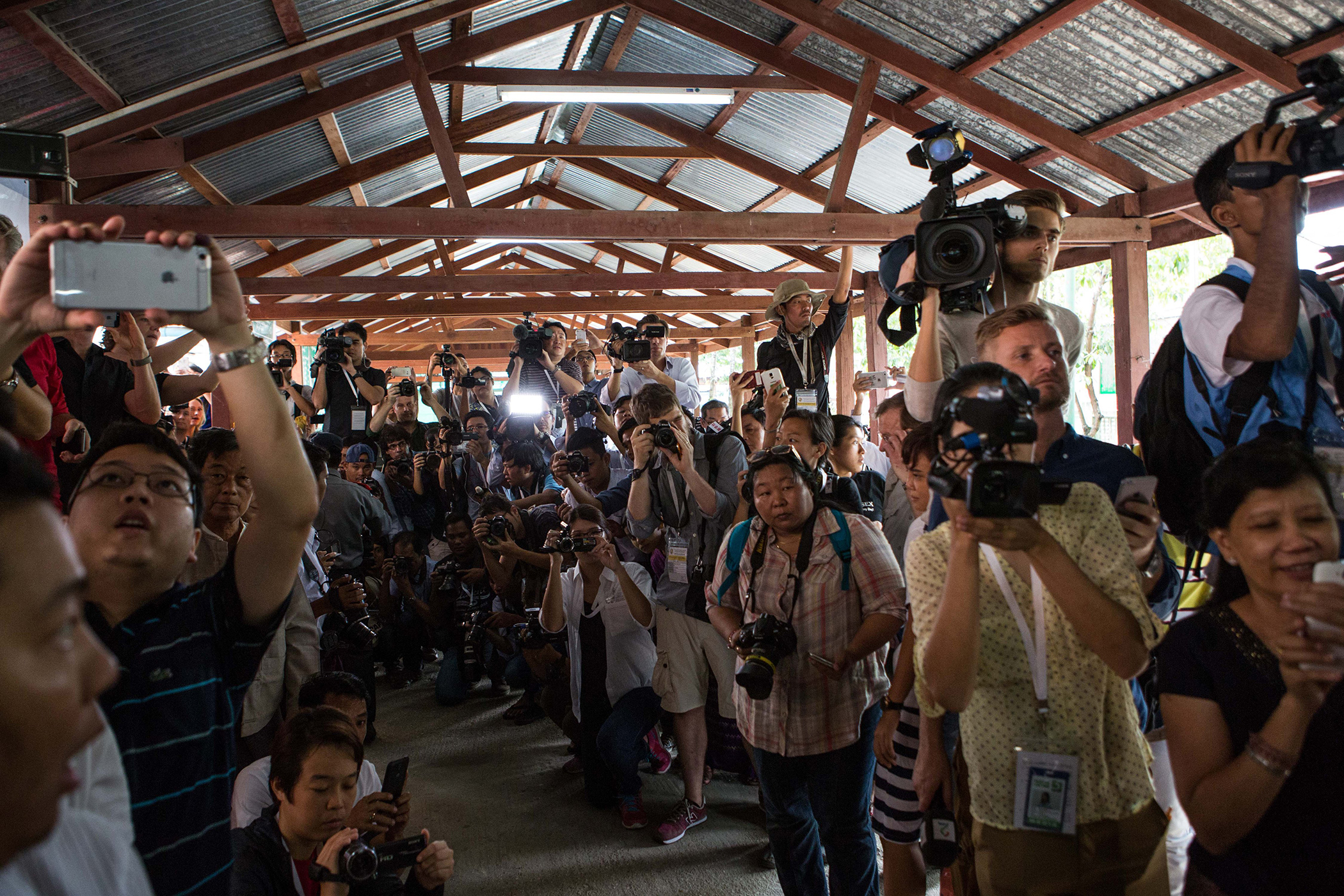
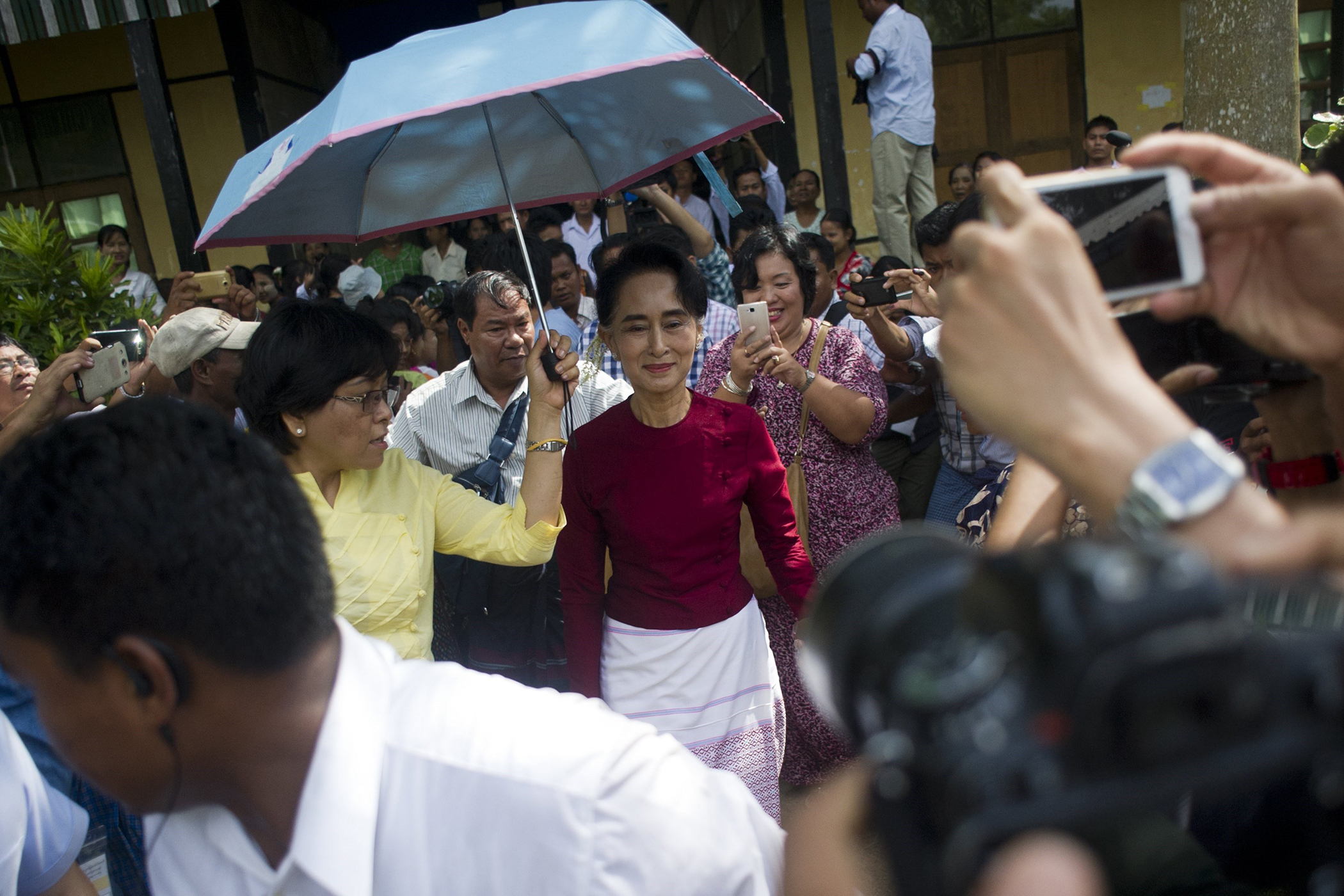
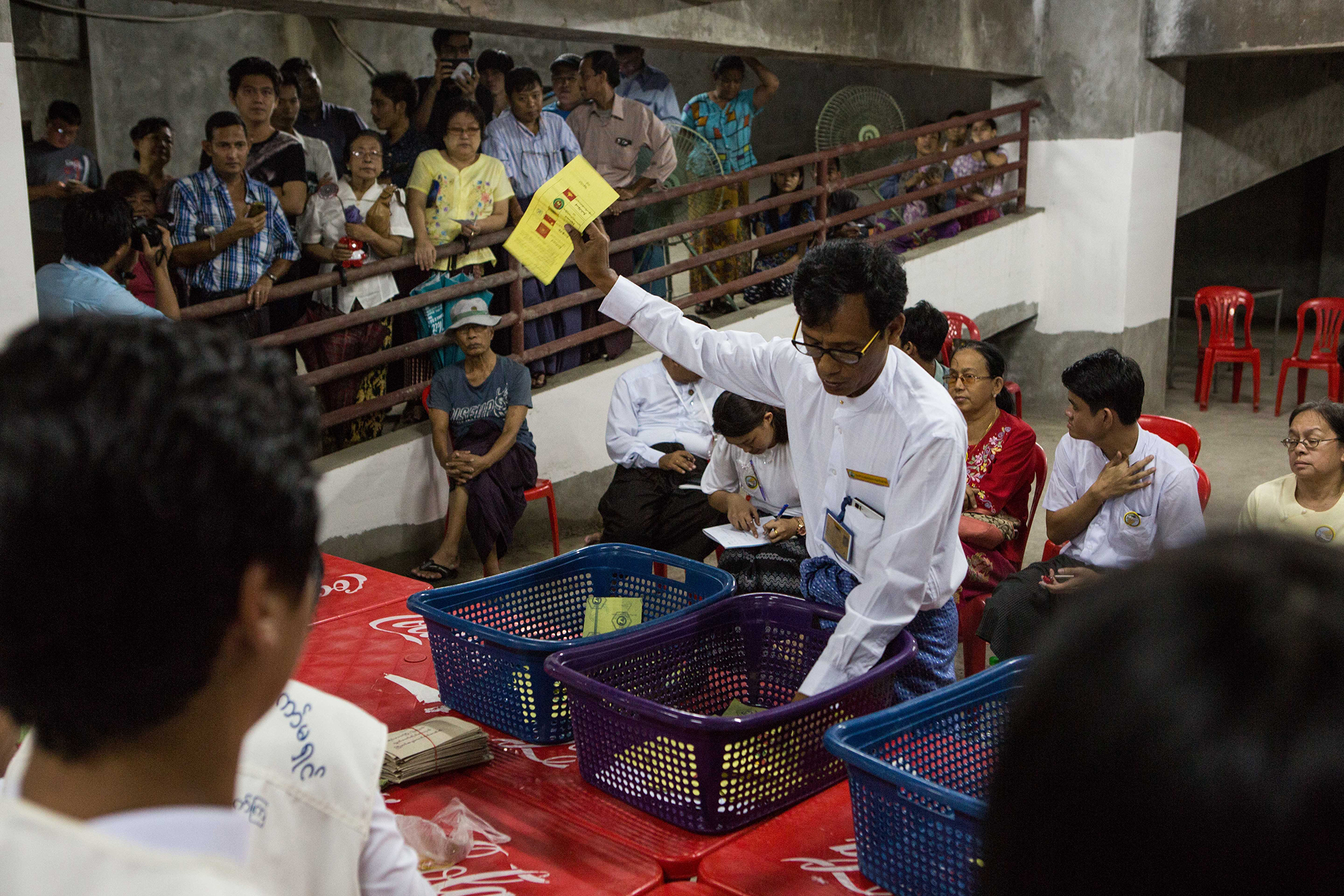
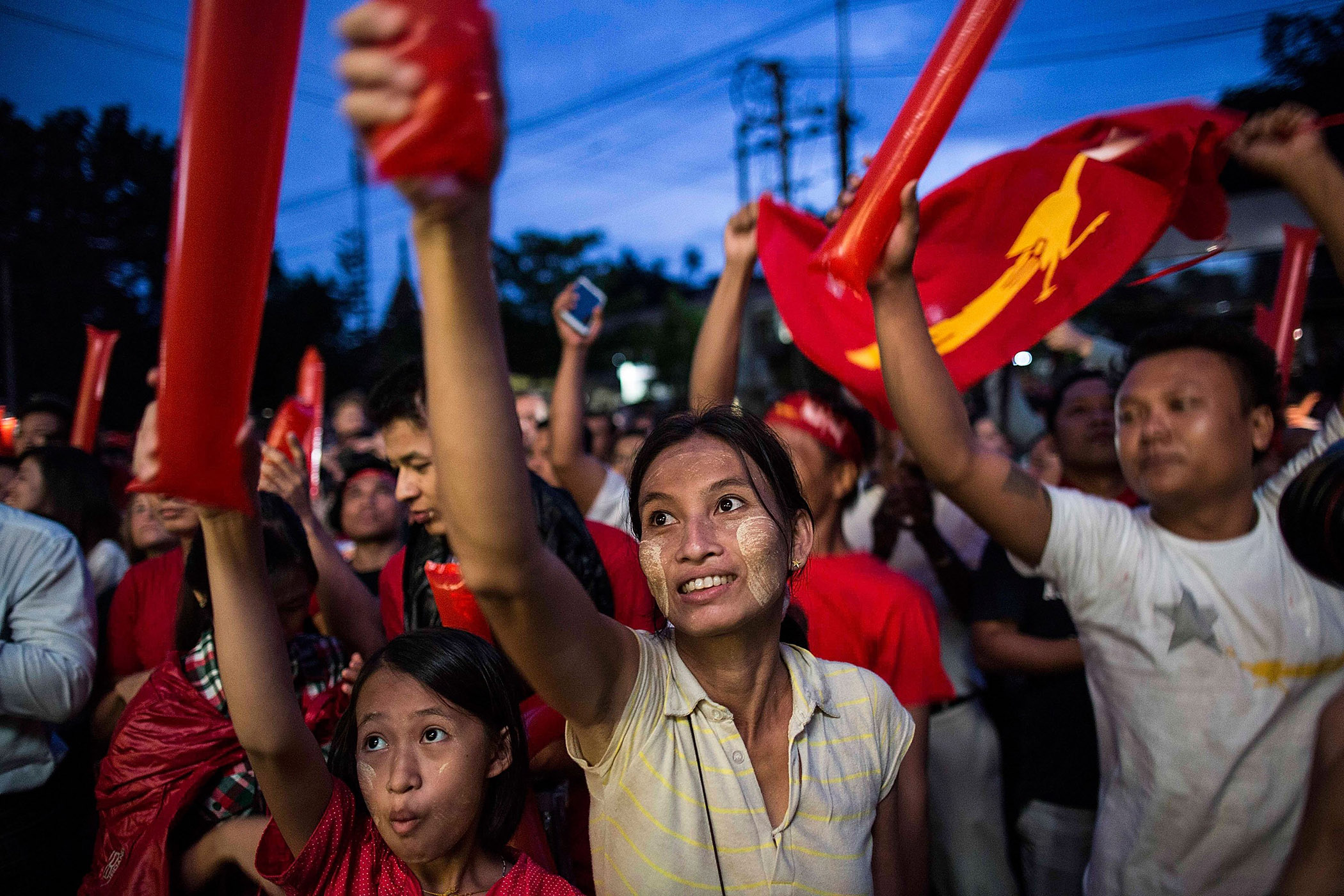
But all these complaints, all these caveats, cannot take away from voters cherishing their belated chance to choose. For hours on Sunday morning, Burmese citizens queued at polling stations, some amid rice paddies, others on streets stained with splashes of betel nut. “I have seen enough violence in my country,” said Su Yin Mon Zin, who came back to Burma last year after eight years studying in Australia. “I don’t want that anymore.”
Our minds are made for adaptation, constantly acclimatizing to new realities. Today, on the streets of Rangoon, known officially as Yangon, people, just like anywhere in the world, walk with their heads bowed over cellphones. In the cities, everyone seems to be on Facebook. Signboards advertise icons of global commerce: Coca-Cola, Land Rover and fancy Toto toilets. Newsstands sell stacks of papers, most bearing the smiling visage of Suu Kyi.
Yet just five years ago, to flaunt of a picture of Mother Suu, as she has been affectionately dubbed, could garner a jail sentence. SIM cards cost thousands of dollars, far more than what an average Burmese city-dweller made in a year. International sanctions — placed on the regime for its record of forced labor, rape and unfair imprisonment, among other crimes — left Burma to molder. Rangoon’s fleet of taxis included geriatric specimens so rusted that you could watch the potholed roads through the floor.
Suu Kyi bristles when people point out all those new cars snarling Rangoon traffic, what she calls “a veneer of change.” Poverty, she notes, is still rife, and an expanding middle class only makes the poor feel poorer. “I often ask foreign delegations who go on about the amazing reforms that are taking place, so I have asked them, ‘what do you think exactly has changed?’” says Suu Kyi. “I was told by one delegation that they see more Toyota cars on the streets. I said ‘that may be very well for the Toyota company but that doesn’t mean our country is doing better.’”
But the millions of Burmese taking part in today’s polls do believe that their voices matter, that their participation in a fundamental social contract counts. There are many questions of concern for the coming days. Will the vote be free and fair enough to past international muster? If the NLD prevails, will it be allowed to form a government — and even if it can form a government what can the party accomplish in a system so stacked in the military’s favor? How will a party so dependent on a single 70-year-old icon manage in an expanded role? Will the army really stay in the barracks? After all, in 2007, just meters from the polling station near the Sule pagoda and Bengali Sunni Jameh mosque, soldiers sprayed bullets on monks, students and ordinary Burmese who had gathered in
peaceful protest. Dozens are believed to have died in the junta’s massacre. That was only eight years ago.
On Sunday morning, a middle-aged female civil servant walked out of the Sule polling station and flashed her purpled little finger. She said that she had been forced a few days before to attend a rally for the ruling USDP, as were many of her fellow government-workers. “But, you know, I voted for the NLD,” she said. “All my friends will vote for the NLD, too.”
Still, an element of fear — a conditioning from decades of government repression and brutality — lingered. It was safer, the civil servant said, not to give her name, just in case something goes very wrong after the vote. Then she waggled her little finger and headed home to celebrate Burma’s historic elections. “My vote,” she said, as she walked away, “is my treasure.”
—With reporting by Helen Regan/Rangoon
More Must-Reads from TIME
- Caitlin Clark Is TIME's 2024 Athlete of the Year
- Where Trump 2.0 Will Differ From 1.0
- Is Intermittent Fasting Good or Bad for You?
- The 100 Must-Read Books of 2024
- Column: If Optimism Feels Ridiculous Now, Try Hope
- The Future of Climate Action Is Trade Policy
- FX’s Say Nothing Is the Must-Watch Political Thriller of 2024
- Merle Bombardieri Is Helping People Make the Baby Decision
Contact us at letters@time.com